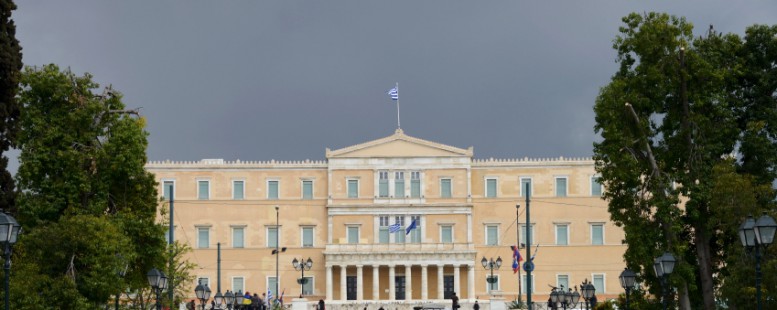Our Opinion: 2015
Pressures in Europe re-emerge

Public services shut down across Greece yesterday in the first general strike since the left-wing government won the election. The strike, a protest at austerity measures imposed as part of the country’s bailout, shut schools, transport and museums, whilst hospitals used emergency staff.
Earlier in the week, the Eurogroup of Greece’s creditors, met to discuss the country’s progress. They’re concerned by the failure to pursue key reforms.
The most pressing issues are around Greece’s banks. The Eurogroup think that stabilising the banking system should be Greece’s first priority. But they also fear that the Greek banking sector has to be far more transparent and efficient. Otherwise any money given to it will simply be wasted.
Then there are concerns over Greek attempts to change the rules on repossession. The new rules would allow anyone with a home worth less than €300,000 to remain in it, even if they were unable to pay their mortgage.
Athens argues that these new rules are needed to stop banks from throwing a large number of people out onto the street. As well as causing social chaos, a fire-sale of homes would drive down the housing market further.
The Eurogroup has given Greece until next week to change the rules on banks and to water down the repossession rules. If Greece doesn’t comply, the creditors will simply refuse to pay out either the €2bn that Athens needs to keep going, or the €10bn promised to support the banks. This in turn could see Greece default on its debt, and the whole agreement unraveling, only months after the much praised ‘rescue.’
Even if that doesn’t happen, this stand-off over banking reforms is having a knock-on effect on hopes for a longer-term deal to resolve the crisis once and for all. Almost everyone agrees that Greece’s current level of debt, at around 180% of GDP, is too high to ever be repaid. So logically, the Eurogroup will eventually have to write-off a chunk of the debt if Greece is to have a future.
Even as Greece’s talks with its creditors grind to a halt, it looks like Portugal may be about to engage in a confrontation with Brussels.
It stems from Portugal’s recent inconclusive election. The main pro-austerity party won the largest number of votes and seats. But it fell short of a majority. So the three opposition parties united to form an anti-austerity coalition, and now they have voted down the government.
This could lead to a major row with Brussels. Like Syriza in Greece, the parties in question have no desire to leave the EU. But – again like Syriza – they plan to increase public spending substantially. That in turn is almost certain to mean running a higher deficit (a bigger gap between spending and tax revenues).
As Capital Economics points out, while Portugal isn’t currently in a bailout scheme, investors have already started to worry, pushing the interest rate on government debt up. Failure to meet the deficit targets could also mean Portugal facing fines from the European Commission.
And, of course, it all adds to the general uncertainty. As one Barclays analyst told the FT: “Minority governments in Portugal tend not to last their full term, and we do not rule out the possibility that Portugal may need to hold elections again within a year”.
With Greece and Portugal both in the anti-austerity camp, it puts even more pressure on European Central Bank boss Mario Draghi to stimulate growth, perhaps even leading to more quantitative easing.
European equities are still looking cheap, despite volatility ahead, and are favoured by our strategic partners – UBS. However, the Euro is likely to remain under pressure and the currency has fallen to a six month low.
